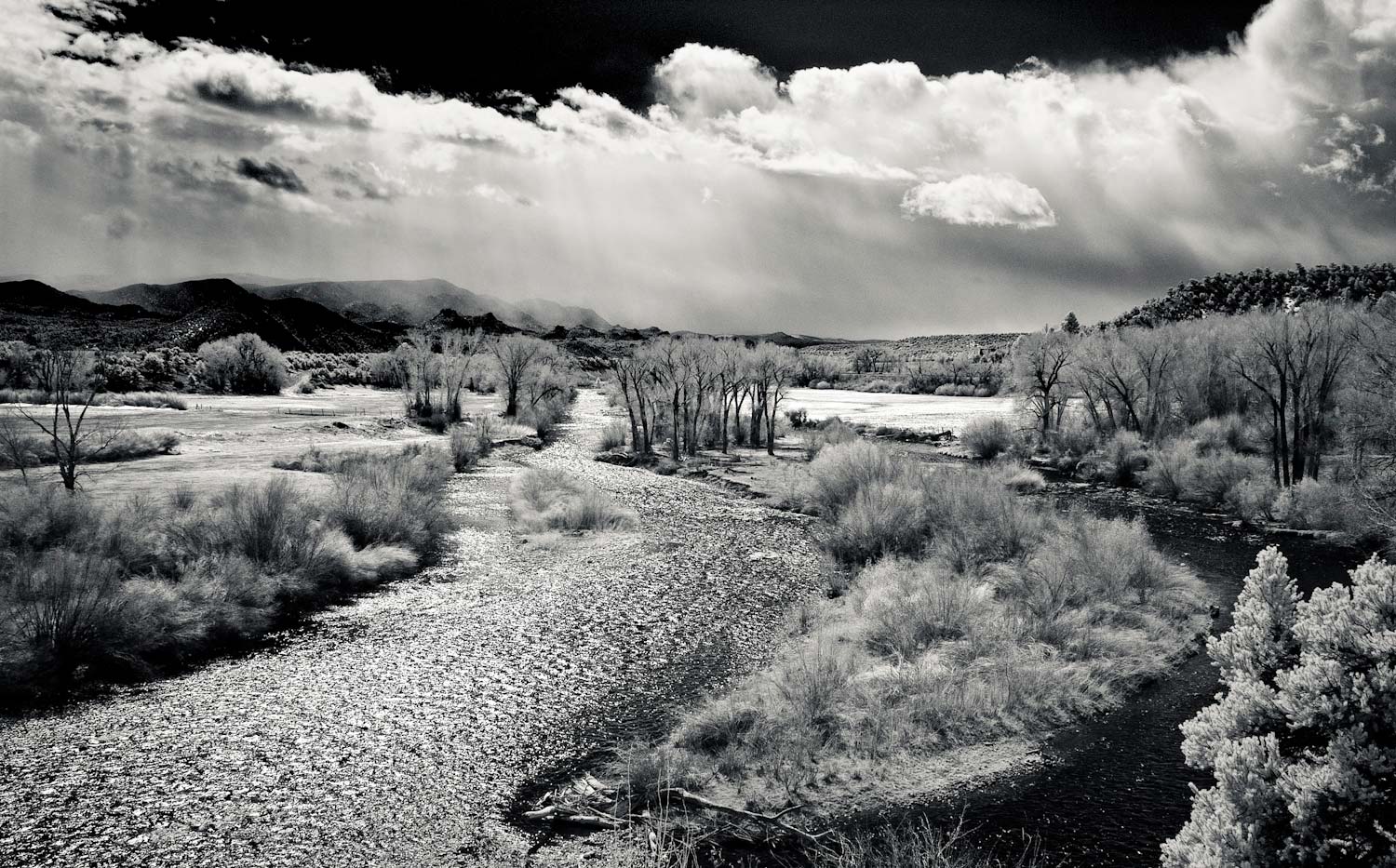My first few years fishing a fly rod, I spent the majority of my time fly fishing small creeks.
One creek in particular called Little Allatoona Creek, grabbed most of my attention because it ran along the outskirts of my subdivision, and took only a short five-minute bike ride from my house to wet a line. This tiny stream held over a dozen catchable warm water species of fish from the sunfish family. As a kid, the coolest part about fishing this creek was you never knew what you were going to hook up with on the end of your line. Sometimes it would be 12-inch redeye bass, while other times, it would be a crappie or a colorful green sunfish. But what really was amazing about Little Allatoona Creek, was its uncanny ability to regularly hold largemouth bass in excess of four pounds. For a kid in elementary or middle school, that was a true trophy catch in our minds. We caught most of those species early on sinking dough balls on a hook. It wasn’t until my Father introduced the fly rod to us, that we began toting around a fly box of balsa wood poppers and learning the art of fly fishing. If my recollections are correct, it only took a day or two of fishing a fly rod on Little Alatoona Creek, before all of us made a trip up to our local sporting goods store to outfit the rest of our crew. Once purchased we never looked back.
Little Allatoona Creek was a seasonal fishery. When the water temperatures got cold in late fall, almost all the fish would migrate several miles downstream into Lake Allatoona to find the refuge of deeper and warmer water. Come spring though, usually around mid-march, all the fish would begin migrating back up into Little Allatoona Creek, and it was once again game-on, for the next several months. The return of the fish was always a grand celebration, putting us all on cloud 9. It wasn’t easy as kids enduring months of not fishing our favorite little creek. There was no better place for my two best friends, Ryan Evans and Sean O’Donnell and I to bend our fly rods and catch fish. We felt like god’s fishing it. Those small warm-water creeks we spent years exploring, were the first places we learned how to read water and locate fish. Boy, was it a shock to us when we turned 16 years old, loaded up in my Ford Ranger pick up truck and took off on our maiden trout fishing adventure on big water.
For the first time in our angling careers we felt lost.
We had never fly fished on big water before, nothing that we couldn’t roll cast our flies across, at least. That first trip dealt my two best friends and I a big fat skunk and it bewildered and humbled all of us. We were the reigning champions on Little Allatoona Creek, master of our domains, but all that quickly vanished once we stepped off our home waters and ventured out fly fishing larger water.
I’ve had many more days over the years with that same lost feeling in my gut fly fishing on big water since then. Big water is much harder for us to dissect and visualize what we’re fishing. You can’t always see the fish you’re fishing to and it’s much harder for beginners to distinguish productive from unproductive water. When you find yourself in this situation and you’re overwhelmed, try searching out the small water amongst the big water. For instance, try finding an island where the river splits. This will cut the size of the water your fly fishing in half, and in turn, you’ll feel more comfortable and confident among your surroundings, just like you do when you’re fly fishing small water. If you’re on a river that has sections where it splits into multiple braids, get off the main stem of the river and explore them. Quite often, there will be just as many fish, including big fish, that inhabit these smaller sections of the river, and you’ll find it much easier to locate and catch them too.
Of course these small water sanctuaries won’t always be easy to find. Sometimes, you’ll have no choice but to stick out fishing the big water when they aren’t available. When this happens, find areas that have noticeable structure changes, where the surface changes (flat water changes to choppy water = depth change). Look for shoals, eddies, buckets, troughs, foam lines and differing surface currents. These are all places where you can identify depth transitions and identify where the food is collecting and drifting to help you locate fish. Look for color change, for example, where light colored water turns to dark green colored water (Light-colored water = Shallow water | Dark-colored water = Deep water). Using these visual clues and you’ll find it to be much easier to read the water. Avoid big water that has the same overall look and characteristics all the way across. This is the hardest water to read and locate fish in. Don’t make the mistake of thinking you have to cast way out in to the middle of the river with your flies, because that’s where all the fish are going to be located. Most of the time it will be really difficult for you to get a satisfactory presentation and drift way out there, and the water along and in close proximity to the banks generally will hold just as many fish. Lastly, find a piece of water that has positive visual clues and fish it thoroughly. Don’t be in a rush to move on. Change flies a few times, adjust your rig. If you feel strongly there are fish located in the water you’re fishing, there probably is. And most of the time if you aren’t getting bites, your tippet is too large, your fly pattern is wrong, or you aren’t getting down to the level of the fish.
If you’re looking at heading out on your first big water fly fishing trip, follow these tips and you’ll avoid getting that lost feeling in your gut. Be prepared to work a little harder and keep your expectations realistic. Over time, you’ll get over the challenge of fly fishing big water. You’ll learn to read it more effectively and you’ll find success much easier. Just remember, when fishing is tough on big water, you can always try searching out the smaller water, which will make you feel comfortable and more in control.
Keep it Reel,
Come fish with us in the Bahamas!
Kent Klewein Gink & Gasoline www.ginkandgasoline.com hookups@ginkandgasoline.com Sign Up For Our Weekly Newsletter!
